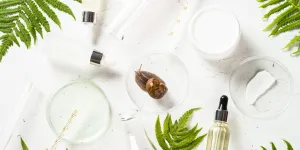Peptides have taken the beauty and personal care industry by storm, promising remarkable benefits for skin health and appearance. These tiny proteins are more than just a trend; they are a transformative ingredient backed by science. If you’re keen to understand what peptides can do for your beauty routine, you’re in the right place.
Table of Contents:
– What are peptides?
– Do peptides work?
– Benefits of peptides
– Side effects of peptides
– How to use peptides
– Top trendy products that contain peptides
What are peptides?

Peptides are short chains of amino acids, the building blocks of proteins, which play a pivotal role in skin health. Unlike proteins, peptides are smaller and more easily absorbed by the skin, making them a potent ingredient in skincare products. They are known for their ability to signal cells to perform specific functions such as collagen production, which is crucial for maintaining the skin’s elasticity and firmness.
The science behind peptides is rooted in their ability to mimic the body’s natural processes. When applied topically, peptides can send signals to skin cells to repair themselves, which can lead to improved skin texture and appearance. This ability to communicate with cells is what sets peptides apart from other skincare ingredients and makes them particularly effective in anti-aging products.
Peptides come in various forms, each targeting different skin concerns. From copper peptides that promote healing and reduce inflammation to signal peptides that encourage collagen production and reduce wrinkles, there’s a peptide for almost every skin issue. This versatility is what makes peptides a must-have ingredient in the skincare industry.
Do peptides work?

The effectiveness of peptides in skincare has been a subject of much research and debate. Clinical studies have shown that certain peptides can significantly improve skin elasticity, reduce wrinkles, and increase collagen production. These results suggest that peptides do indeed work, especially when used consistently over time.
However, the efficacy of peptides also depends on the formulation of the product and its ability to penetrate the skin. Peptides need to be formulated in a way that preserves their stability and allows them to be absorbed effectively. When peptides are properly formulated and combined with other beneficial ingredients, they can significantly enhance skin health and appearance.
Despite the promising evidence, it’s important to have realistic expectations. Peptides are not a magic solution but rather a valuable addition to a comprehensive skincare routine. For best results, they should be used in conjunction with other proven ingredients like antioxidants and sunscreen.
Benefits of peptides
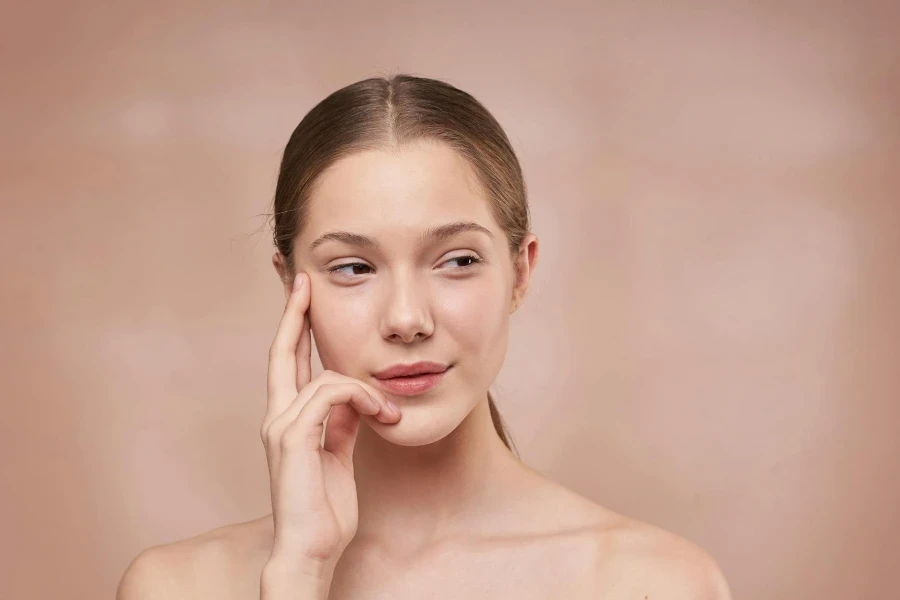
Peptides offer a multitude of benefits for the skin, making them a coveted ingredient in the beauty industry. One of the primary benefits is their ability to stimulate collagen production, which can lead to firmer, more youthful-looking skin. As collagen decreases with age, peptides can help counteract this process, reducing the appearance of fine lines and wrinkles.
In addition to their anti-aging properties, peptides also have the ability to hydrate the skin. Certain peptides can improve the skin’s barrier function, helping to retain moisture and protect against environmental damage. This can lead to smoother, plumper skin that is more resilient to external stressors.
Peptides can also have a calming effect on the skin, reducing inflammation and promoting healing. This makes them suitable for use in products designed for sensitive or acne-prone skin. By calming irritation and promoting repair, peptides can help improve overall skin health and appearance.
Side effects of peptides
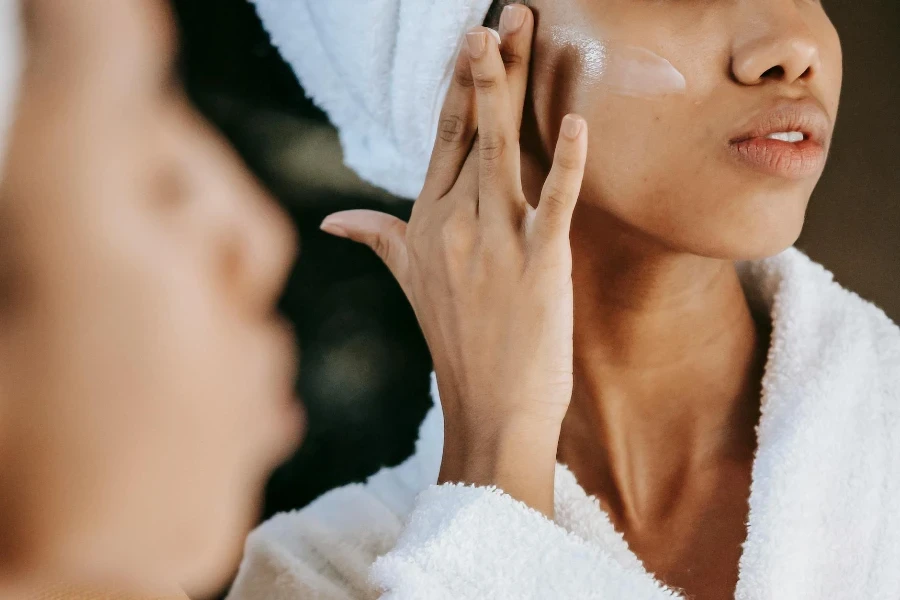
Peptides are generally considered safe and well-tolerated by most skin types. However, like any skincare ingredient, they can cause side effects in some individuals. The most common side effects are skin irritation and sensitivity, which can occur if a product is too strong or used too frequently.
It’s also possible for allergic reactions to occur, though this is rare. If you experience redness, itching, or swelling after using a peptide-containing product, discontinue use and consult a dermatologist. Patch testing a new product on a small area of skin before full application can help minimize the risk of adverse reactions.
Given the variety of peptides and their potential effects, it’s important to choose a product that is suited to your specific skin concerns and to follow the manufacturer’s usage instructions. Starting with a lower concentration and gradually increasing it can also help minimize side effects.
How to use peptides
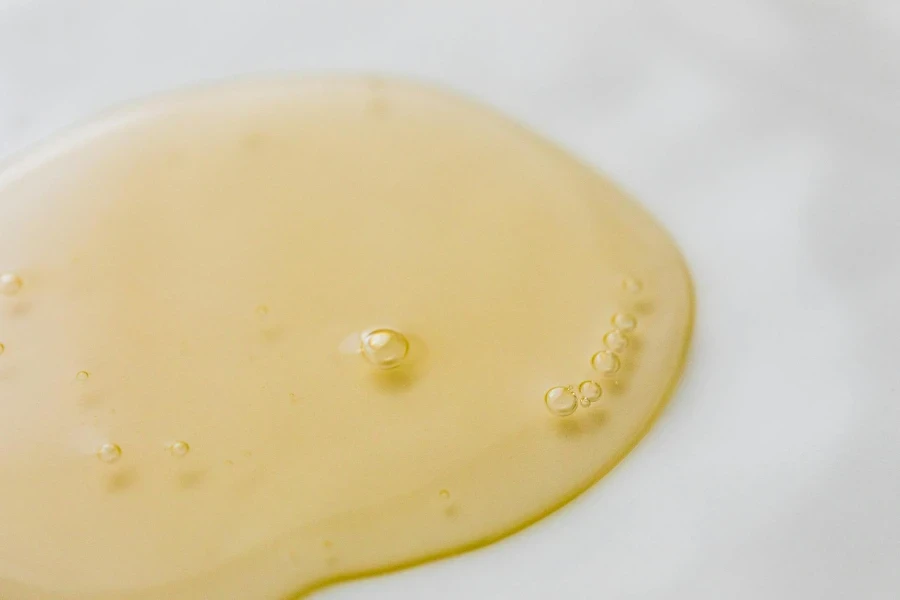
Incorporating peptides into your skincare routine is straightforward. Peptide-containing products come in various forms, including serums, creams, and masks. For best results, apply peptide products to clean, dry skin, allowing them to fully absorb before applying other products.
Peptides are most effective when used consistently over time. While some immediate effects may be noticeable, such as increased hydration, the full benefits, especially in terms of anti-aging, may take several weeks to become apparent. For this reason, patience and persistence are key when using peptide products.
It’s also beneficial to use peptides in conjunction with other skin-loving ingredients. For example, using a peptide serum under a moisturizer containing hyaluronic acid can enhance hydration, while combining peptides with antioxidants can provide comprehensive anti-aging benefits.
Top trendy products that contain peptides
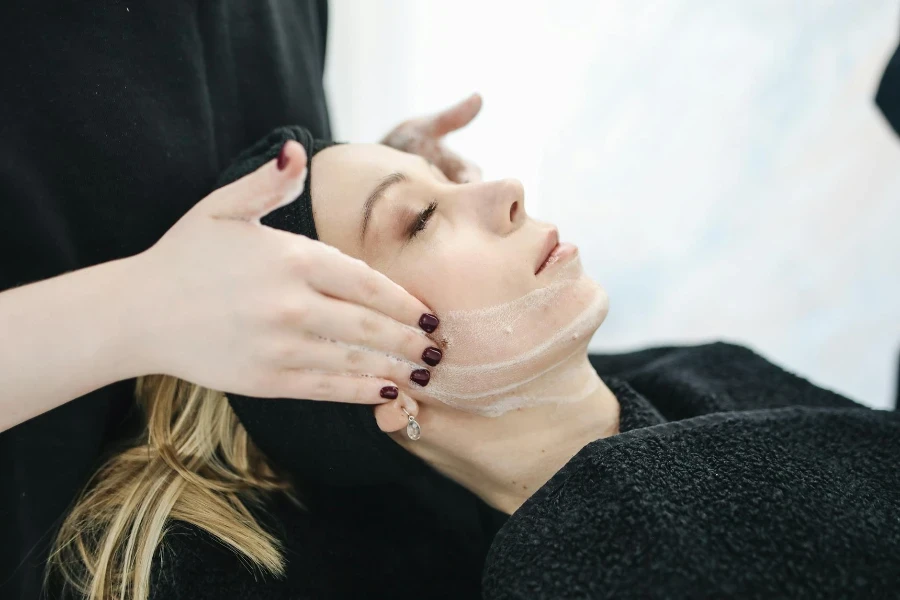
While specific brands and products are beyond the scope of this article, there are several types of peptide-containing products that are currently trending in the beauty industry. These include multi-peptide serums that target various signs of aging, eye creams specifically formulated with peptides to reduce dark circles and puffiness, and moisturizers that combine peptides with other hydrating ingredients for maximum benefit.
Another trend is the use of peptide masks, which provide an intensive treatment to improve skin texture and appearance. These masks are typically used once or twice a week and can provide a noticeable boost to your skincare routine.
Finally, there’s growing interest in peptide-based body care products, such as lotions and firming creams. These products aim to extend the benefits of peptides beyond the face, targeting areas like the neck, chest, and hands that can also show signs of aging.
Conclusion:
Peptides are a versatile and effective ingredient in the realm of beauty and personal care, offering a range of benefits from anti-aging to hydration. While they are not a cure-all, they can make a significant difference in skin health and appearance when used correctly. With a variety of products available, incorporating peptides into your skincare routine has never been easier. Whether you’re looking to combat wrinkles, improve hydration, or soothe sensitive skin, there’s a peptide product out there for you.


